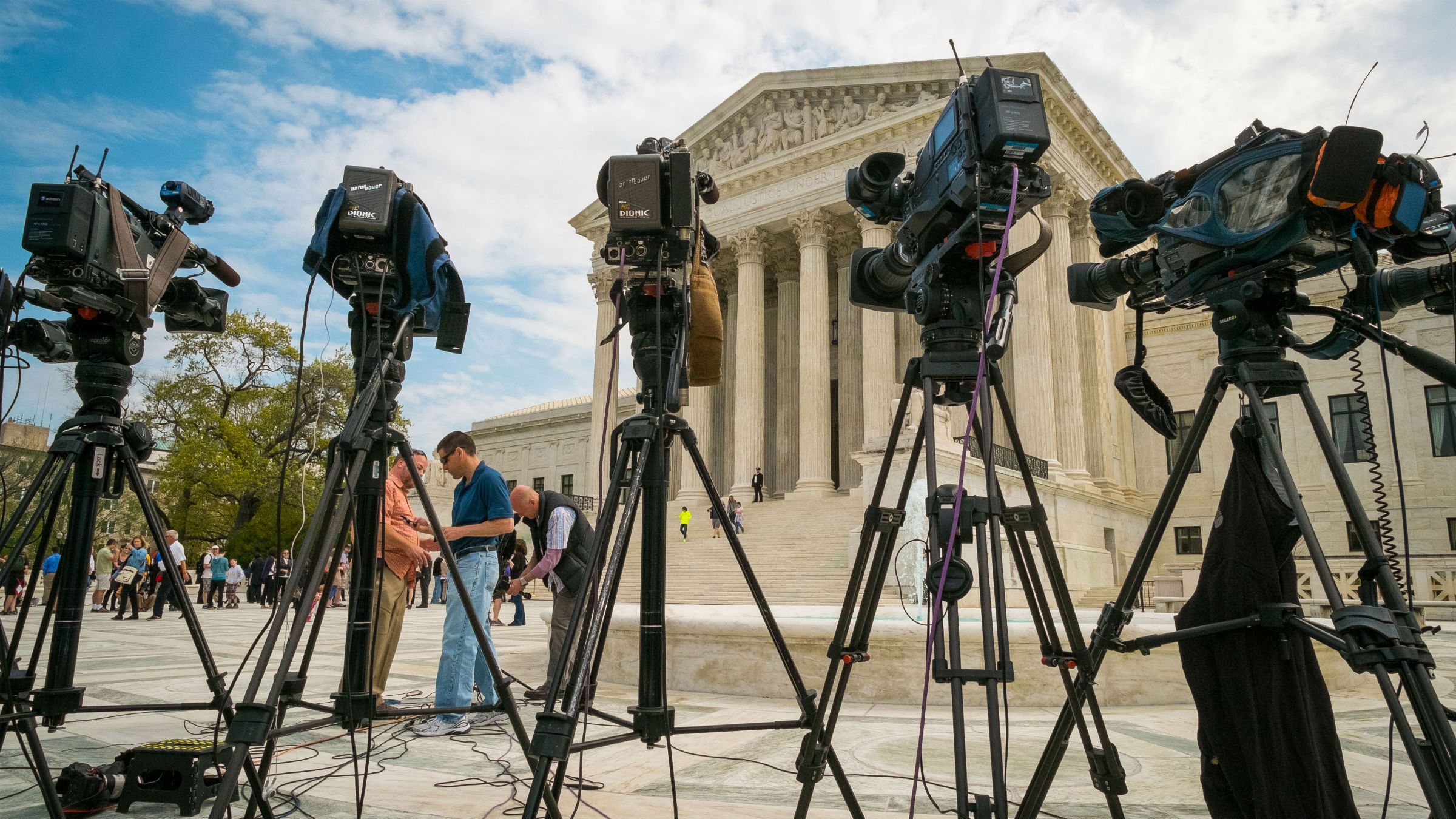To help the Supreme Court better understand the stakes of this critical case, Stop Predatory Gambling assembled a broad and diverse coalition to file an amicus brief demonstrating the law’s constitutionality and highlighting how state-sanctioned gambling has been a spectacular failure. The brief explains how state-sanctioned gambling uses unfair and deceptive marketing practices to target and prey on the financially desperate and the addicted; reduces opportunity for millions of American families to improve their economic standing; and forces even those citizens who rarely or never gamble to foot the bill for the enormous social costs and state budget problems it leaves behind.
Lawsuits
Poulos v. Caesars World: A Battle over Corrupt Business Practices
This article details the court case Poulos v. Caesars World, where Caesars World, a casino corporation, was sued for “a course of fraudulent and misleading acts and omissions intended to induce people to play their video poker and electronic slot machines based on a false belief concerning how those machines actually operate, as well as the extent to which there is actually an opportunity to win on any given play”. This legal battle of the business practices of Caesars World casinos shows the extent to which players can be swindled into losing large sums of money on games that are deigned for them to lose.
Piercey Estate v. Atlantic Lotto Corporation
In the 2008 Canadian Supreme Court Case, Piercey Estate v. Atlantic Lotto Corporation, Inc., the plaintiffs argued that video lottery terminals (VLT’s, or video slot machines) are designed to be “inherently deceptive, inherently addictive, and inherently dangerous, when used as intended, without any information or warning.” The plaintiffs’ daughter in this case, Susan Piercey, “lost her life due to the deceptions designed into VLT games, which led to addiction and suicide.” They made the case that the Atlantic Lotto Corporation (ALC) violated the Trade Practices Act, which had originally been put in place to protect consumers from unfair trade practices. The plaintiffs went on to say that “in modern government, government through agencies and corporations are interfering more and more with the consumer and, as such, it makes sense to have the governments responsible for their own actions or actions of its agents.” The justice presiding over this case, however, determined that because the ALC is an agent of the Canadian government, they are not bound by the restrictions of the Trade Practices Act.
Below is the decision of the case and a press release from the attorneys representing the Piercey estate.
Piercey Estate v. Atlantic Lotto Corporation
Press Release – Piercey Estate v. Atlantic Lotto Corporation
Hoffman v. Sandia Resort & Casino, NM
On October 6, 2010, the U.S. Supreme Court declined to review the New Mexico Court of Appeals decision in Hoffman v. Sandia Resort & Casino. The case involves a New Mexico man who reportedly won $1.6 million dollars at one of the casino’s slot machines. However, the Sandia Pueblo tribe, which owns the casino, informed Hoffman that the payout would not be made because the slot machine had malfunctioned. Arguing before courts in New Mexico, the tribe claimed Hoffman had no legal recourse because of the tribe’s sovereign immunity. Courts in New Mexico supported the tribe’s position and concluded that tribal immunity can only be waived “for purposes of providing a remedy to casino patrons who suffer physical injury to their persons or property.” These decisions seem to suggest that there is no legal remedy for casino patrons who have suffered financial injury because of wrongdoing at tribal casinos.
Please read the opinion of the New Mexico Court of Appeals below.
Caesars Riverboat Casino v. Kephart
In October 2010, the Indiana Supreme Court ruled against a woman who said an area casino preyed on her gambling addiction. Jenny Kephart filed a lawsuit against Caesars Indiana in 2007 after the casino sued her to recover $125,000 that she lost in a single night of gambling in the year before. The casino is now Horseshoe Southern Indiana.
Kephart said the casino enticed her to gamble with free meals and rooms as well as money on credit. The casino even sent a car to drive her from her home in Tennessee to the Indiana casino. Below are the legal briefs from Caesars Riverboat Casino v. Kephart.
Caesars Riverboat Casino v. Kephart – Appellant Brief
Caesars Riverboat Casino v. Kephart – Brief of Apellee
Caesars Riverboat Casino v. Kephart – Appellee’s Petition to Transfer
Caesars Riverboat Casino v. Kephart – Appellee’s Petition for Rehearing
Caesars Riverboat Casino v. Kephart – Appellee’s Petition to Transfer Reply Brief
Caesars Riverboat Casino v. Kephart – Appellant’s Brief of Response to Petition to Transfer
Caesars Riverboat Casino v. Kephart – Reply Brief of Appellant

